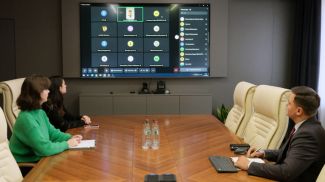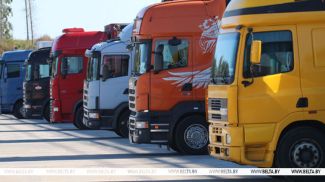MINSK, 21 October (BelTA) – It is necessary to work on strengthening the technological sovereignty of the Eurasian Economic Union. Prime Minister of Belarus Roman Golovchenko made the statement during an expanded session of the Eurasian Intergovernmental Council in Yerevan, Armenia on 21 October, BelTA has learned.
Roman Golovchenko said: “Now it is very important to fill with concrete meaning the tasks, which were formulated when the [Eurasian Economic Union] Treaty was signed, such as economic integration. It is not limited to customs and tariffs and access to markets. Taking into account the evolving situation it is necessary to take care of strengthening the union's technological sovereignty. We are trying to project what we are doing within the framework of cooperation with the Russian Federation, within the framework of the Union State of Belarus and Russia onto the G5.”
In his words, the first proposal put forward by Belarus envisages creating a Eurasian electrobus. Active work on the project is in progress. A working group of the five member states discussed technical aspects in Minsk not so long ago.
The prime minister noted that the financing of such projects had been discussed during the session. “There are two sides. The first one is the funding of projects. The second one is finding cheap resources for implementing joint projects. Effectiveness indicators of many projects may not be as high as those of conventional banking projects able to ensure fast recoupment. But they are important for another reason: we are going to create our own products. This is why we've been working on reducing interest rates. It was decided that 10% of the transferred protective antidumping duties will be spent on subsidizing interest rates,” he said.
According to Roman Golovchenko, more projects like that are needed. “Today I said that we have to act faster, that one project is not enough. We could use five to seven projects, they should be implemented concurrently. We've been pushing for it because we are confident that it is the union's future. It is the next very important step for transition from a common market, from free trade to serious projects able to connect economies of the countries. All the partners support this message. There is one thing though: we have to move faster and implement the first project of this manufacturing cooperation,” he concluded.













